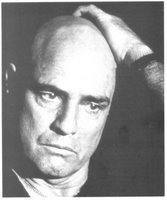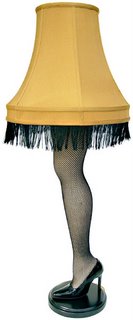Fran Pishker is the woman who inspired this remembrance. It's now four years since I wrote this and I'm not sure why I was reticent about her name; when I began blogging I erred on the side of caution when it came to privacy issues. But Fran was the real deal, and should be remembered as such -- "WP"/DPR, 2009
I complained to my father that the local library -- a windowless concrete box, bricked up with decorative flagstone -- didn't have enough science fiction in its collection. He said a used bookstore had just opened up nearby. What say we hop in the car and pay a visit? I was a young teen in the habit of re-reading anything half-entertaining, but I consulted my collection for possible trade-in value, selected a few titles, and off we went.
At first blush, this bookstore was only a modest improvement on the library. It was very small. The linoleum floor was dusty, the entire place made all the moreso by the proprietor's ever-present cigarette smoke. She was, indeed, a little old lady. While my father and I perused the different shelves (so many of them all but empty), she pulled books from boxes and scurried about finding spots for them. The SF section was small, but the selection was more to my liking than the library's, and I found a few items to take with me. She accepted our books, took down our names, then explained the trade-in policy. "Make sure you come back in a week or two," she said. "I'll have more books for you."
This was mid-winter, and the possibility of my return was dependent on my dad's readiness to drive me. I didn't get back to the store until late spring, when I could ride my bicycle. I pulled a few more SF goodies off the shelves (the selection was now quite impressive), then presented them to the lady with a few items for trade. She smiled at me and said, "You're ____, aren't you?"
I said business must be slow, if she could remember my name from several months back. She laughed, and said that was about right. In fact, that was not at all the case. Business was good, and she soon moved to a larger facility. And I came to realize over the years that her ability to remember and connect with nearly every single customer was what made her a stand-out success.
Our verbal exchanges began with the usual bookstore chat. She saw me pick up
Dune, and recommended Julian Mays. Another time, I traded in a near-pornographic pulp-rendition of the Arthurian legend; she thought I might like Mary Stewart's approach. Was I reading Louis L'amour? "Take my copy of
Hombre, and tell me what you think. Personally, I think Elmore Leonard was a better writer when he wrote westerns." When I returned
Hombre, she pointed me to Cormac McCarthy.
But books were just the starting point of our conversation. After I returned from a year of Bible school, she could see I was in aimless drifting mode. Hers is the only encouragement I can remember from those days. "If you were a young man in Tibet, you would spend two years walking the streets with a rice bowl before you embarked on anything substantial, like a formal education or a profession. I honestly think there's something to recommend that sort of 'just observing' time."
She regaled me with stories of the 70s. She had lived in New York, and was recovering from an operation when the Watergate hearings were being conducted. She said the remarkable thing was how
everyone was watching those hearings -- there was no aspect of the public that wasn't fully engrossed and engaged. People were intent on being intimately aware of the history being made --
their history.
When the movie came to Winnipeg, I asked her if she'd seen
84 Charing Cross Road. She gave me a pained look, and admitted that she'd gone under duress. "It's not the sort of movie I'd choose to see, but everyone was telling me I simply
had to, so I finally did. What a stupid movie! That final scene where Anne Bancroft stands in this empty store, grinning like a fool after her friend has died and the business has folded -- my God, I just wanted to slap that girl!
"I'll tell you what I liked about it, though -- the scene where the old guy and his wife are dining on a patio, then suddenly stand up and join the conga line! That's
exactly the sort of silly thing we did in those days! So wonderful!"
Her attention to nuance and detail was formidably precise. Witnessing it in action, though, quietly encouraged my own small efforts at compassion. That woman could converse with anyone. I overheard her talking to a balding middle-aged lout who'd taken a taxi across town to complete his collection of
Mack Bolan:The Executioner books. She was delighted. In one of my last conversations with her, she told me about a nine-year-old boy who came in and read her electricians manuals and scientific dossiers. "He doesn't understand fiction!" she laughed. "He thinks it's all a complete waste of time!"
I couldn't understand her laughter. Just hearing about this kid, I wanted to thump some sense into him. She laughed, but I couldn't muster anything more convincing than a shaky grin.
The fall when she finally died of the expected cancer, the store was sold to a young guy fresh out of community college. He introduced comic books to the mix, a move that kept me as a customer but probably lost a few older ones. After we got to know each other a bit, I said, "You must have had some tricky encounters when you took over the store."
"You've no idea," he said. "One older woman came in with a pie, and asked me where her friend was. When I told her she'd passed away, this woman just collapsed and wept. It was over an hour before she could get it together enough to leave." He shook his head. "Man, they don't prepare you for
nothing like that in college."
No, they certainly don't. They might, if you're lucky, encourage you to pay attention to detail. And if you're especially attentive, and especially fortunate, you might just learn the knack of taking delight in other people's perspectives -- particularly those foreign to your own.









